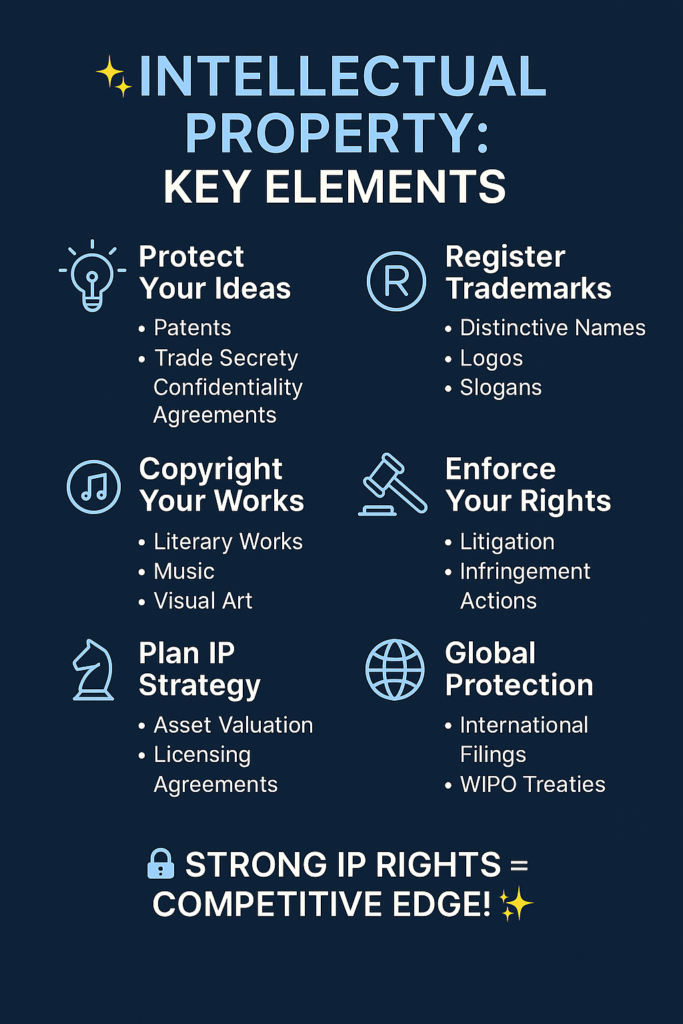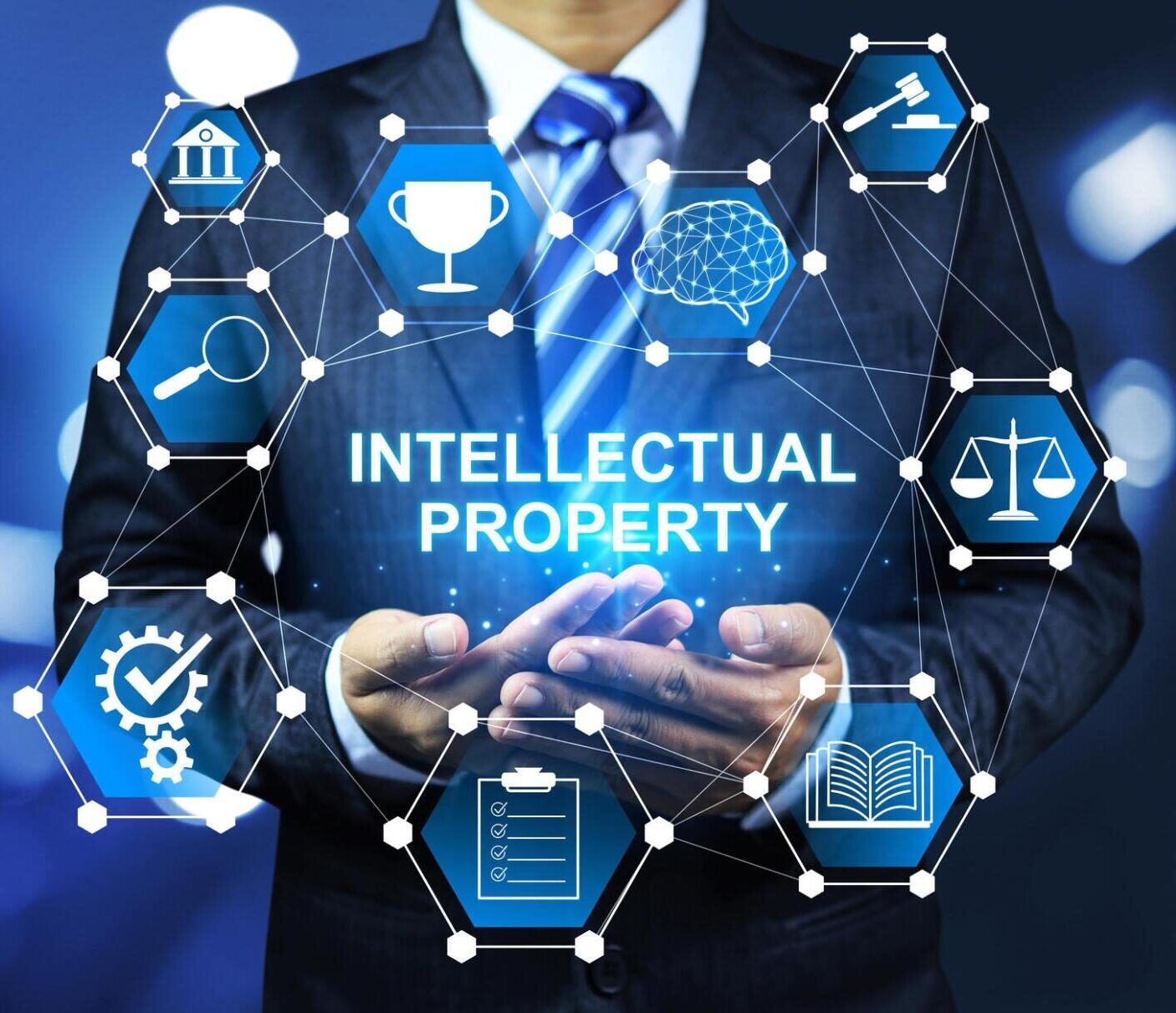How We Handle Intellectual Property Cases?
At SNS Legal Aid, we assist individuals and businesses in protecting their intellectual property rights through trademark registration, copyright protection, and patent filings. Our services include:
- Trademark Registration & Protection: Ensuring brand identity is safeguarded from infringement.
- Copyright Registration & Enforcement: Protecting literary, artistic, and musical works.
- Patent Filing & Prosecution: Assisting inventors in securing exclusive rights to their innovations.
- IP Infringement Litigation: Taking legal action against unauthorized use of intellectual property.


Basic Laws & Acts Involved in Intellectual Property
- The Trade Marks Act, 1999: Governs trademark registration, opposition, and enforcement.
- The Copyright Act, 1957: Protects literary, artistic, musical, and dramatic works.
- The Patents Act, 1970: Provides rights and protections for inventors.
- The Designs Act, 2000: Safeguards the visual appearance of products.
- The Geographical Indications of Goods Act, 1999: Protects regional product identities.
Lorem ipsum dolor sit amet, consectetur adipiscing elit. Ut elit tellus, luctus nec ullamcorper mattis, pulvinar dapibus leo.
Detailed Explanation of Intellectual Property Laws
1. Trademark Law
A trademark is any symbol, word, or combination that distinguishes the goods/services of one business from another. Registration grants exclusive rights to use the mark and prevent unauthorized use.
- Registration Process: Filing an application, examination by the Registrar, publication for objections, and final approval.
- Validity: 10 years (renewable indefinitely).
- Legal Protection: Owners can take civil and criminal action against infringers.
2. Copyright Law
Copyright protects original works, including literary, musical, artistic, and cinematographic creations.
Protection Duration:
- Lifetime of the creator + 60 years (literary, musical, artistic works).
- 60 years from publication (cinematographic works, sound recordings).
Enforcement: Rights include reproduction, distribution, and adaptation. Owners can seek injunctions and damages for infringement.
3. Patent Law
A patent grants an inventor exclusive rights over a new invention for 20 years.
- Types of Patents: Utility patents (new inventions), Design patents (ornamental designs).
- Requirements: Novelty, inventive step, and industrial application.
- Enforcement: Patent holders can take legal action against unauthorized manufacturing, use, or sale.
Our IP Legal Services
✅ Trademark Search & Registration
✅ Copyright & Patent Filings
✅ Legal Notices & Cease & Desist Letters
✅ Litigation & Enforcement Actions
✅ Licensing & Assignment Agreements
Frequently Asked Questions (FAQs)
Registering a trademark gives exclusive rights over your brand, preventing unauthorized use and enhancing legal protection under The Trade Marks Act, 1999.
The entire process takes 8-24 months, depending on objections or oppositions during the examination stage.
You can send a cease & desist letter, file a case for injunction & damages, and even initiate criminal action if required.
No, copyright protection is automatic upon creation, but registration strengthens legal claims in case of disputes.
No, ideas cannot be patented. Only inventions that are new, non-obvious, and industrially applicable can be patented.
You can file an infringement lawsuit to seek damages and request an injunction against further use.
If a trademark is not renewed within 10 years, it becomes liable for removal from the registry, but you can restore it within 6 months after expiry.
Yes, patents and trademarks can be licensed or assigned to another entity for commercial benefit.
Under Indian law, trademark infringement can result in fines and imprisonment, while copyright infringement can lead to financial penalties and criminal prosecution.
We provide end-to-end services, including registration, enforcement, litigation, and legal advisory, ensuring your IP assets are protected from infringement and misuse.

